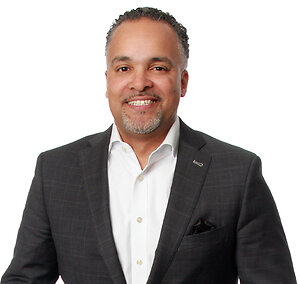Protecting Student-Athletes and Their Families: A Guide to Navigating Agent Selection, NIL Agreements, and Collectives
Overview
As the world of college and professional sports rapidly evolves, athletes and their families are faced with a complex and often overwhelming landscape of opportunities and obligations. The worlds of name, image, and likeness (NIL); influential collectives; and agent representation are still evolving—and so are the risks.
As a result, it has never been more important for athletes to be informed, protected, and surrounded by trusted advisors. Families who take the time to understand the landscape, ask the right questions, and engage legal professionals put their athletes in the best position to succeed.
Choosing the Right Agent: More Than Just Representation
The decision to sign with an agent is happening earlier in an athlete’s career due to NIL. Agents are tasked with managing career opportunities, endorsements, and, in some cases, NIL and collective negotiations. However, not all agents operate with the same level of transparency or integrity.
Families should approach agent selection with the same level of care and due diligence as they would selecting a college. Key questions to consider include:
- What is the agent’s track record and reputation?
- What specific services will and will not be provided?
- How is the agent compensated? Is the fee structure clear and fair?
It's particularly important to understand that while some agent fees may be appropriate for negotiating professional contracts or endorsement deals, charging a significant percentage of a collective deal—especially when that money is offered to the family from a school or collective directly—is not standard or necessary. These are red flags that should be reviewed with legal counsel before signing.
NIL Agreements: Understanding What You’re Signing Away
NIL deals can be transformative for student-athletes, offering immediate financial gain and long-term brand development. However, these opportunities may come with strings attached. Many contracts include language that grants long-term rights to an athlete’s NIL, social media content, or personal appearances.
It is critical to read the fine print. Questions to ask include:
- How long does the agreement last?
- What rights are being given away?
- Are there exclusivity clauses or restrictions on other endorsements?
Without a clear understanding of the terms, an athlete could unknowingly lock themselves into an unfavorable deal that limits their freedom and financial potential.
Collective Contracts: When the Money Looks Good, But the Terms Don’t
Collectives—groups of alumni, boosters, or local businesses organized to pool resources and support college athletes—have become a driving force in the NIL world. While these groups can provide substantial financial support to athletes, the structure of their contracts can vary widely—and some are deeply flawed.
It’s not uncommon to see agents attempt to insert themselves into these deals and claim a percentage for themselves, even when the collective is offering money directly to the athlete. That is not normal and, in many cases, unnecessary. Be wary of agents demanding large percentages on these types of arrangements.
Many collective agreements also have performance clauses, restrictive covenants, or ambiguous language around payment schedules and compliance expectations. These contracts must be reviewed by someone who understands sports law and the emerging NIL environment. A bad deal today could impact an athlete’s eligibility, future endorsement opportunities, or even their relationship with the school.
Legal Counsel: An Important Voice on the Team
There is no substitute for experienced, objective legal counsel—especially when the stakes are this high. Student-athletes and their families need someone who can:
- Analyze the terms of any agreement before it’s signed.
- Explain what’s at risk and what could go wrong.
- Advocate for better terms and flag potential violations of state NIL laws, NCAA rules, or school policies.
Just because a contract looks official doesn’t mean it’s in the athlete’s best interest. And just because “everyone else is doing it” doesn’t mean it’s the right move for your family. The smartest athletes surround themselves with professionals who aren’t trying to take a piece of the pie.
Qualified legal counsel not only provides peace of mind, it also levels the playing field for families navigating an industry that often prioritizes profit over people. Before signing anything—agent agreements, NIL contracts, collective deals, or school-driven opportunities—insist on a full legal review. This new era of sports is not just about playing the game—it’s about protecting your name, your rights, and your future.
Professionals
Related Services
Multimedia
Amundsen Davis Sports Law Attorney, Luke Fedlam, details what we can expect after Judge Claudia Wilken of the Northern District of California makes her final ruling on $2.8B House v. NCAA settlement.

